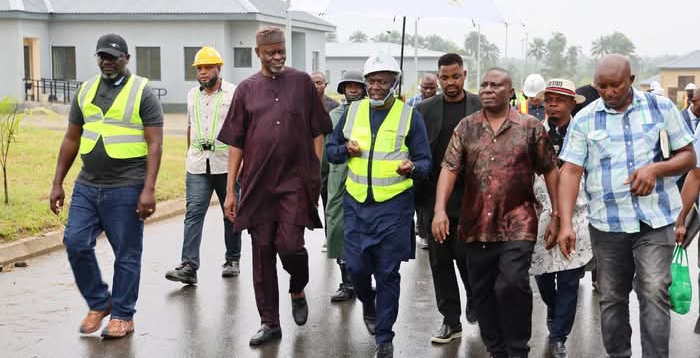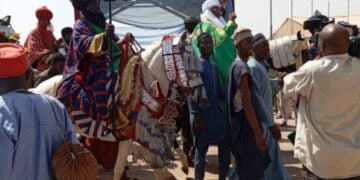In its bid to collectively deliver sustainable cleanup of Ogoni land as well as provide knowledge legacies, expertise and framework for the remediation of other parts of Nigeria, the Hydrocarbon Pollution Remediation Project (HYPREP) has promised to deepen collaboration with stakeholders and non-governmental organisations across divides.
The Coordinator of HYPREP Professor Nenibarini Zabbey said this when some Non-governmental Organisations (NGOs), the African Centre for Leadership, Strategy & Development together with the Friends of the Earth International visited various HYPREP sites in Ogoniland.
Professor Zabbey stressed that HYPREP is disposed to collaborating with NGOs, institutions and development partners to ensure the actualisation of a sustainable cleanup of Ogoni.
While reeling out the Project’s significant achievements, he added that it has been possible due to community support and ownership of the Project, which he said has been designed to position the Ogoni people as the centre piece of the cleanup programme.
In commemoration of this year’s World Mangrove Day, the Project Coordinator led the visitors to a presentation of a Prolific Wildling Award to a Mother mangrove tree in the Bomu shore, which has produced over 15,000 seedlings. He described this as a significant reflection of nature’s contribution to HYPREP’s mangrove restoration efforts in Ogoni as the seedlings will be replanted in the next phase of HYPREP’s large-scale mangrove restoration.
After the visit by the Non-governmental Organisations (NGOs), the visitors commended HYPREP for the significant milestones the Project has recorded under Professor Nenibarini Zabbey as Project Coordinator.
Founding Executive Director, Centre-LSD and Hemantha Winthanage who is also the President, Friends of the Earth International, gave the commendation while expressing satisfaction at the successes recorded in the provision of potable water, Construction of the Centre of Excellence for Environmental Restoration (CEER) as well as Ogoni Specialist Hospital and Livelihood programmes, among others.
While pledging to continue in sustaining the advocacy for the funding and sustainability of the projects, at the Bomu waterfront, site for the HYPREP mangrove restoration project, the NGOs planted mangroves to demonstrate their support for the Project in its frantic effort to restore lost oil-degraded mangrove areas, having recorded 93% completion in Phase 1.





